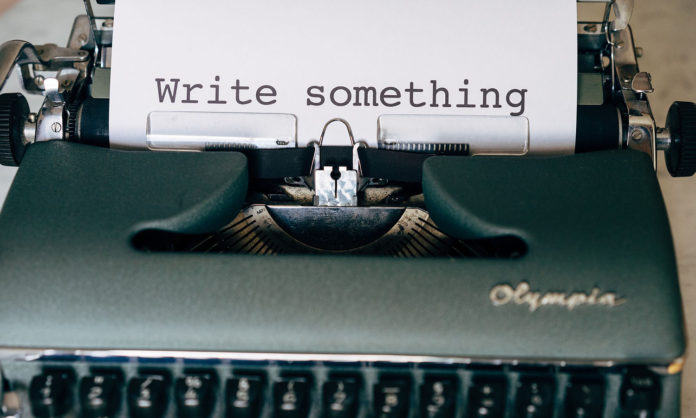
If you’re following this blog, you likely want to learn to improve your writing. We do, too. But what’s the best way to go about it?
In a post on Writer Unboxed, Dave King says that you can’t practice your way to good writing, the way you can learn to play a musical instrument or a sport, for example. “You can’t learn to manage character voice, build tension, or use concrete details through repetition,” King writes. “Everything in writing connects to everything else, so even if you’re writing a number of similar sorts of scenes, each scene has a different contribution to make to your story. You can’t write the same scene twice.”
Even if you rewrite scenes, King says that won’t do it. “Even when you’re on your fifteenth draft of a scene, you shouldn’t be focusing on the skills you’re using,” he says. “If your attention is on your writing skills, you’re going to wind up with something mechanical when you want something organic.”
Instead, King suggests you read books about writing and work with an editor. Coincidentally, King is an editor who has written a book on how to improve your writing.
We don’t usually call BS on articles that we share, but we do here. We cannot disagree more strenuously with this incredibly unhelpful advice. We can’t think of another piece of writing advice that agrees with it.
Yes, you absolutely can practice your way to better writing. Do you struggle with dialogue? Spend some time in a public place and listen to other people’s conversations. Write them down as close to verbatim as you can. Get a feel for how people speak, for what they say and what they leave out. Practice writing dialogue that won’t appear in any story. Work on it until it sounds true to life and pare back the parts that don’t convey necessary information. Polish it until you get a feel for the characters, even if you don’t describe them. Practice.
Do the same with description. Write a few paragraphs describing characters or setting. Find vague words and replace them with stronger descriptors. Hit the thesaurus and your dictionary. When you’re done, cut out half the language. Leave the details that a reader would need to know. Find the essence of your subject using the fewest and best words possible. Practice.
The very act of writing is practice. You begin with journaling and writing exercises. You start stories you don’t finish. You write “the end” on stories that aren’t very good. Your next one is better and the next one is better than that. In time, you look back at your early efforts and cringe.
There’s more to it than that. You should also read voraciously, ask for feedback, study what other writers say and do. And yes, you might work with an editor someday. But all writing is practice. Prompts, journaling, exercises, and challenges can open your creativity and imagination, and help you learn tricks and techniques you can put into your next projects.
Practice, practice, practice.
Seriously. Fuck that article.










